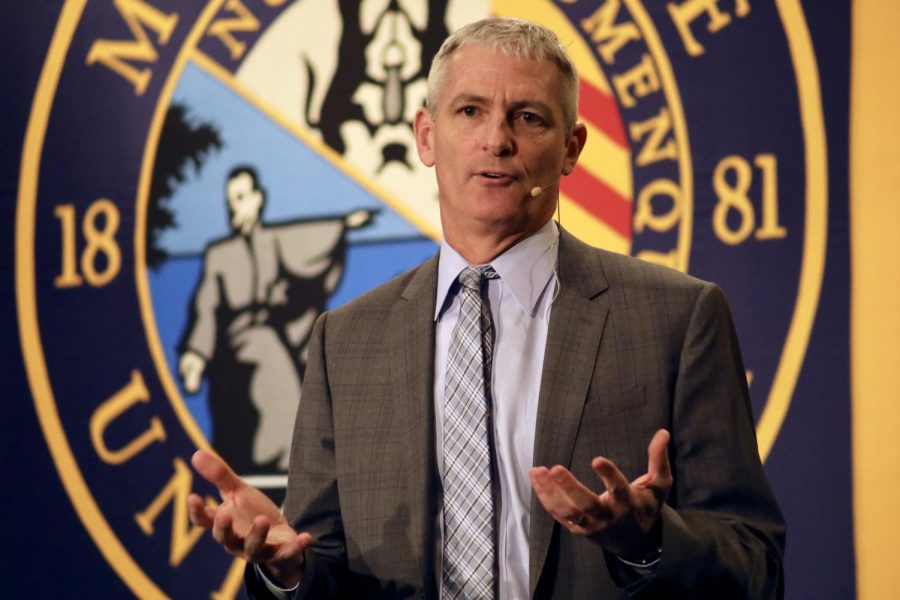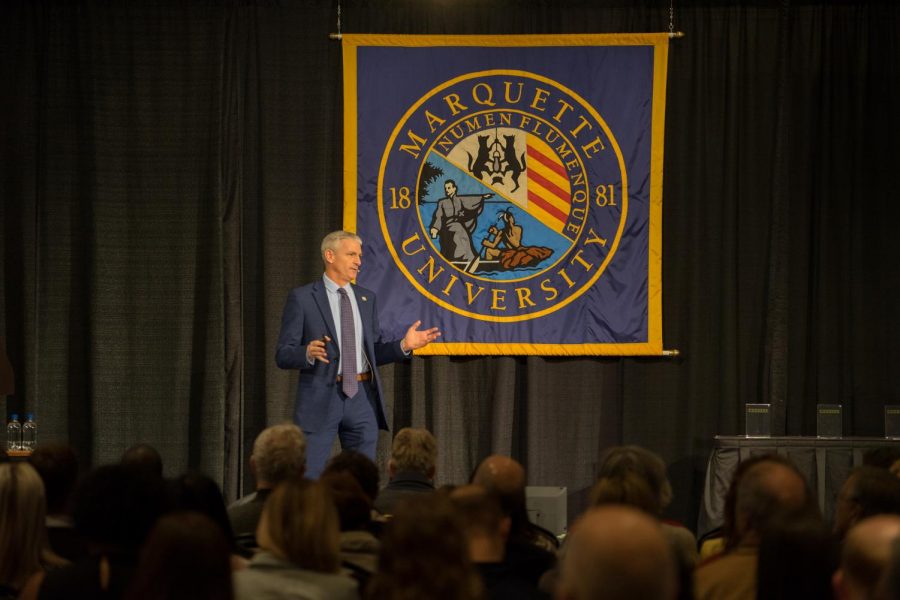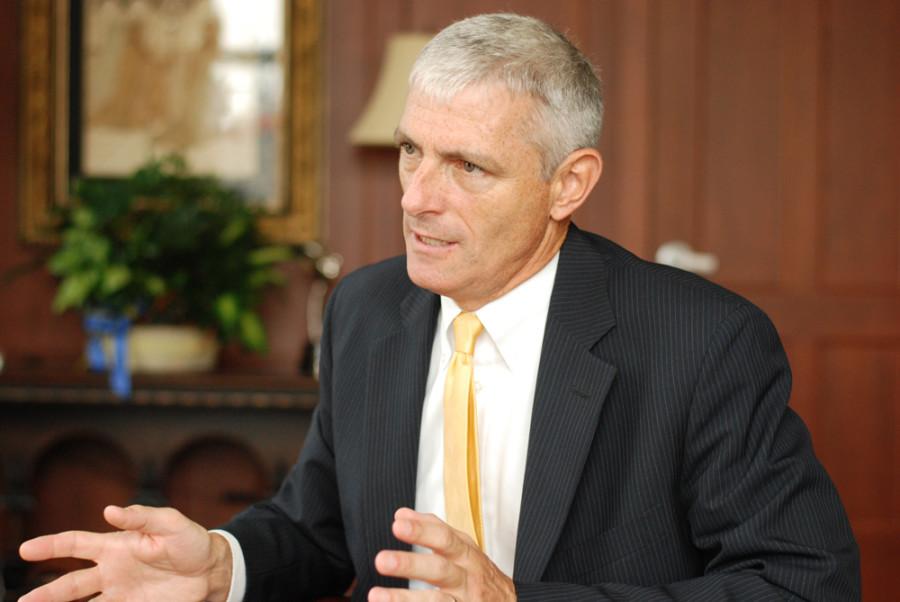The Milwaukee Journal Sentinel’s recent stories about mental health influenced Oprah Winfrey’s CBS “60 Minutes” segment regarding the childhood trauma epidemic in Milwaukee March 11.
John Schmid, a Milwaukee Journal Sentinel reporter, said he wondered if Milwaukee’s urban economy suffered more than any other major urban center in America. The urban newspaper published a series called “Dreams Derailed,” written in 2004, the year of the 50th anniversary of the Brown vs. Board of Education decision.
After writing “Dreams Derailed,” Schmid said his curiosity persisted. He was interested in the impact of trauma in Milwaukee. In 2016, he received a research fellowship from Marquette’s Lubar Center for Public Policy Research and Civic Education. With the support of Law School Dean Joseph D. Kearney, Schmid was able to produce in-depth work that became the series “Time to Heal.”
“Time to Heal” covered economic anxiety, economic decline, economic disruption and the epidemic of childhood trauma throughout Milwaukee.
“By the time I was finished with the project, I saw the city and its dynamic in a new way, much like Oprah Winfrey did after she followed our story,” Schmid said in an email.
Winfrey grew up in a city, poor and on welfare, experiencing a lot of negativity, including sexual abuse, according to CBS News. The Journal Sentinel’s stories inspired Winfrey to change her thinking about mental health and trauma from, “What is wrong with you?” to, “What happened to you?” Schmid said.
Childhood trauma refers to any traumatic experiences from abuse, neglect, separation from a parent, watching domestic violence or living with someone who suffers from addiction or mental illness, said Amy Lovell, president of the organization REDgen. The local community action group advocates for mental health and the well-being of all youth.
Schmidt said Winfrey latched onto the idea that decades of antipoverty programs haven’t moved the needle in Milwaukee or other cities like it.
University President Michael Lovell said he believes Oprah is inspired to invest in the lives of youth so that any child, regardless of their background, has the same opportunity to succeed as she did.
“Oprah has done an excellent job raising awareness around childhood trauma, the scientific basis behind it and the impact that has on our community,” President Lovell said in an email.
Nearly two weeks ago, President Lovell announced his goal to encourage and inspire his faculty and staff to end the cycle of Milwaukee’s crime, poverty and joblessness through this year’s Inaugural President’s Challenge.
Since there is a direct correlation between disparities and trauma, President Lovell said it is anticipated that any proposal funded in the President’s Challenge would address childhood trauma.
“At Marquette, we have an advantage of addressing an epidemic like childhood trauma because students, faculty and staff already are called on to ‘Be The Difference’ in the lives of others,” he said.
In the case of Marquette, Schmid said the challenges are acute.
“Twenty-five percent of the homeless beds in the state of Wisconsin are located in the immediate vicinity of the university, Marquette’s researchers have found,” he said.
As for students being the difference, Amy Lovell said students can make sure they understand what trauma and its effects. She emphasized the importance of healing its behavioral and physical effects as well as knowing how best to work with people from trauma backgrounds.
Known for their over 450,000 hours of community service, President Lovell said, Marquette students are already actively engaged in neighborhoods experiencing trauma.
President Lovell said that Marquette, as an important institution within Milwaukee, can play an integral role in being an agent of change for our community.
“We cannot solve all of Milwaukee’s challenges related to trauma ourselves, but through partnerships with other organizations within our city we can start moving the needle,” he said. “Marquette can also be a convener for individuals and organizations around the city to discuss issues related to trauma and develop action items to address these issues.”




